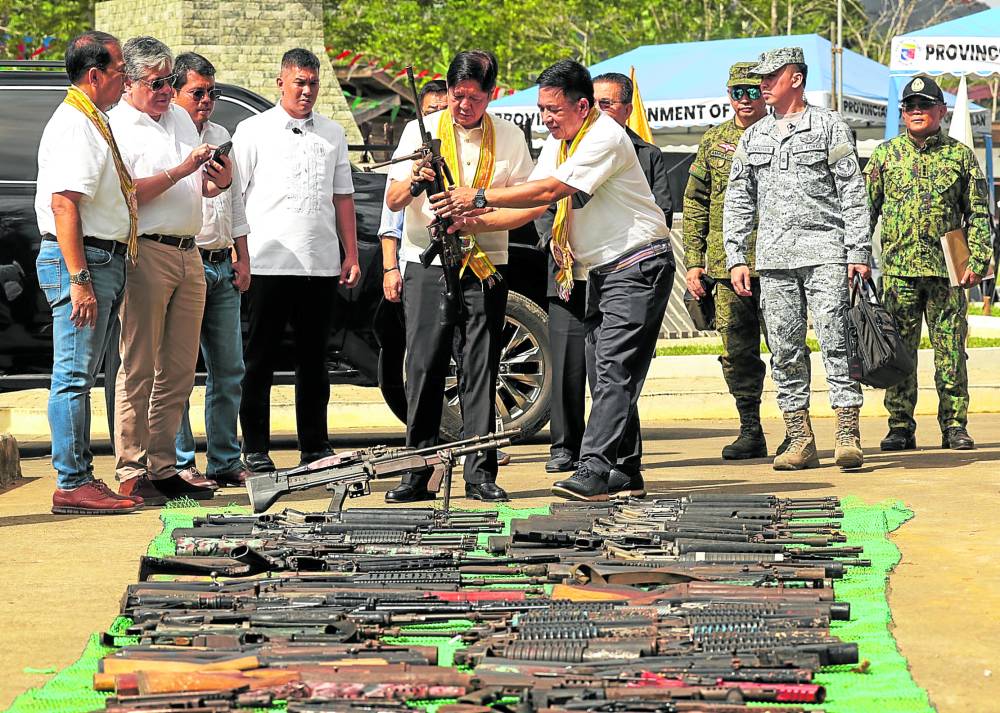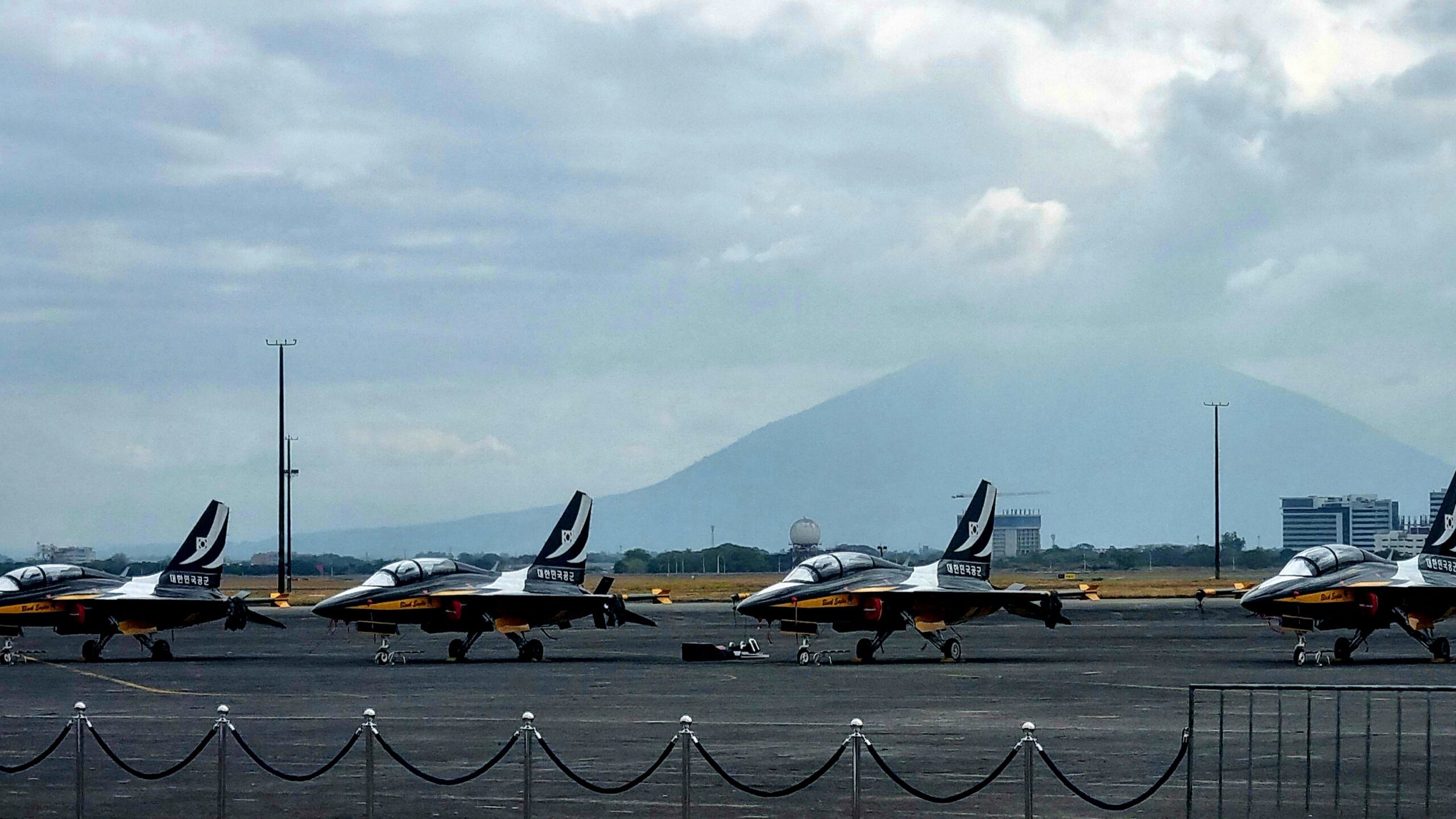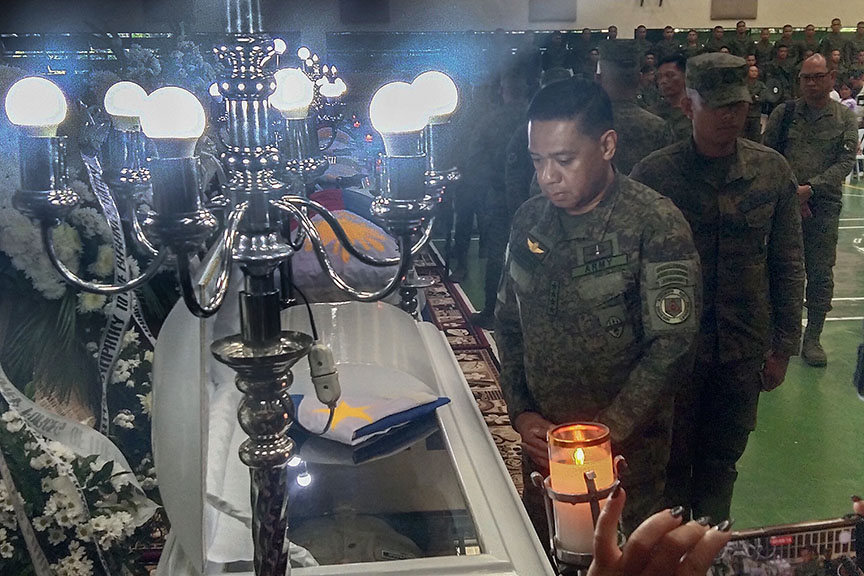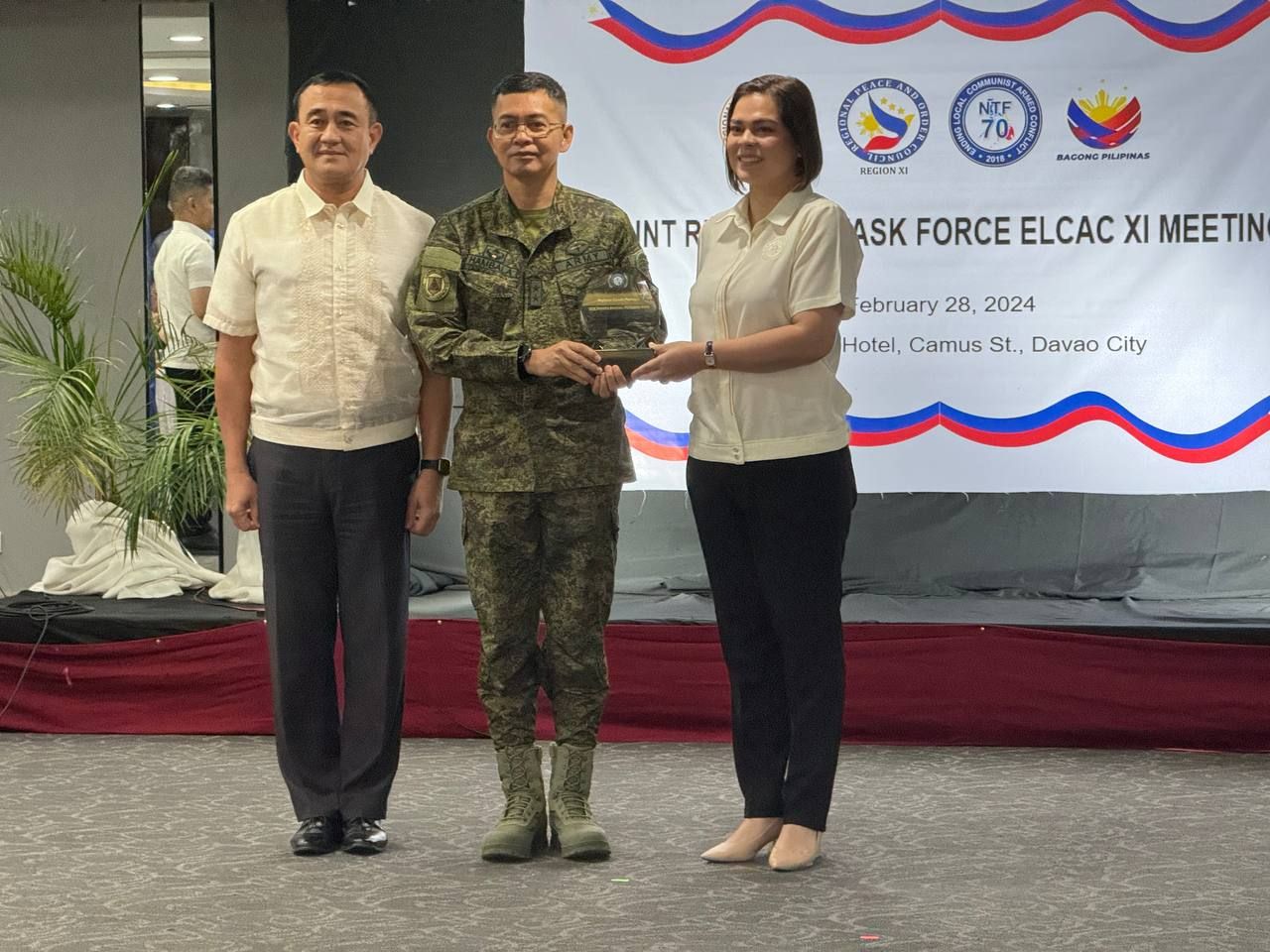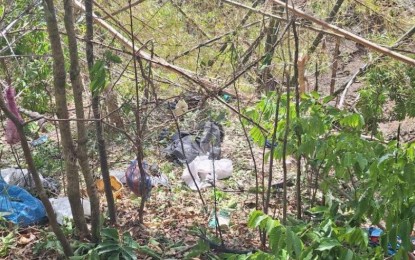From Rappler (Mar 2, 2024): In a region under ‘threat,’ Marcos presents to Australia a Philippines on the frontlines (By BEA CUPIN)
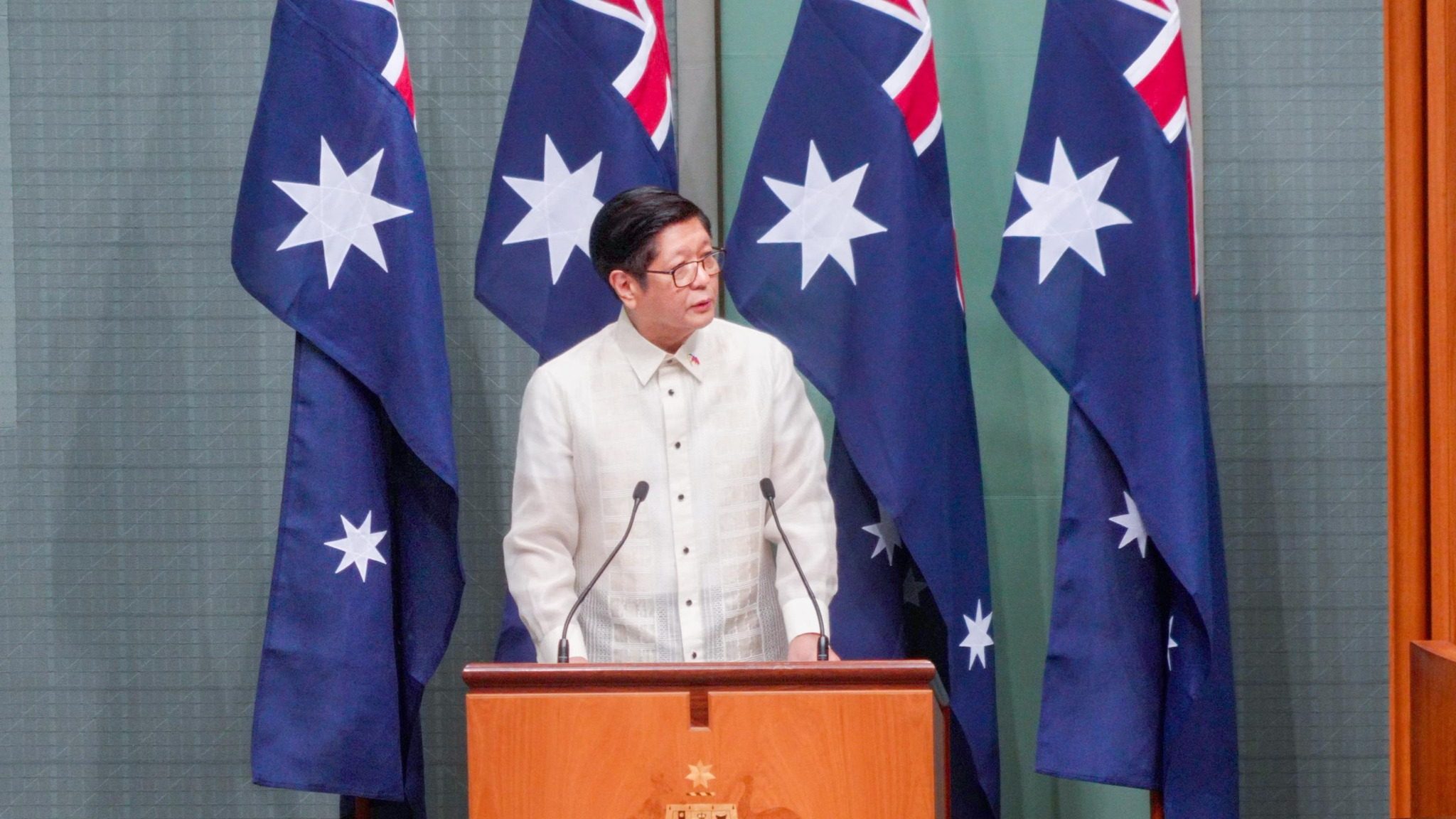 The Philippine president draws on history during a visit where the outcomes – in talk and in documents – look toward the future as the Indo-Pacific deals with actions that ‘undermine regional peace, erode regional stability, and threaten regional success’
The Philippine president draws on history during a visit where the outcomes – in talk and in documents – look toward the future as the Indo-Pacific deals with actions that ‘undermine regional peace, erode regional stability, and threaten regional success’In his first visit to Canberra as commander-in-chief, Philippine President Ferdinand Marcos Jr. on Thursday, February 29, spoke of a Philippines that was on the “frontline” against “actions that undermine regional peace.”
“We must reinforce each other’s strengths. We must protect the peace that we fought for during the war and have jealously guarded in the decades since. We must oppose actions that clearly denigrate the rule of law,” said Marcos at Parliament House, speaking before legislators of Manila’s newest strategic partner.
Marcos, who flew into Canberra the night before, wore his usual barong but donned a pair of spectacles to address a joint sitting of Australia’s parliament.
The son and namesake of the late dictator is the first Philippine president to have been invited to address parliament. He joins an exclusive club that includes former US presidents and Chinese leaders.
Marcos’ visit was not universally welcomed – Senator Janet Rice, of the minority Australian Greens party, held up a banner decrying human rights abuses in the Philippines, and protesters staged a rally outside Parliament House against the Philippine president.
Yet for the Albanese government and even the opposition – Marcos is a welcome and important visitor.
“I know you will be warmly welcomed wherever you go in Australia. Because all of us in this place, and indeed all Australians, are united in our respect for the contribution your nation and your people make to our region and our communities,” said Albanese, after thanking Marcos and his wife, First Lady Liza Araneta-Marcos, for hosting him and partner Jodie Haydon in September 2023.
His trip to Canberra, with another visit to Melbourne days later for a regional summit, comes as tensions in the South China Sea continue to rise and concerns over stability in the region concern even countries that exist outside of it.

‘When the Southern Cross met the Pearl of the Orient’
Dr. Maria Tanyag, a research fellow and lecturer at the Australian National University’s Department of International Relations, said the invitation from Australia to make the “rare” address is “the strongest testament to the importance of the Philippines for geopolitical relations.”
“Australia, in a variety of ways, has been signaling its commitment to Southeast Asia, and [this invitation] is part of it. It also aligns because Marcos is also sending the right signals. This is an alignment of strategic interest,” she said in an interview with Rappler before Marcos left for Canberra.
Marcos swept the 2022 national elections on a campaign that vaguely promised to continue the policies of his predecessor, former president Rodrigo Duterte.
In the realm of foreign affairs, especially, Marcos could not be any more different than the former city mayor who came before him.
“Marcos is opening up in ways that Duterte was not. And Australia has been for a while trying to position itself, not just in Southeast Asia, but also in the Pacific. Having the Philippines as an ally covers that region fully. Because again, the Philippines is not just Southeast Asia, it’s very much the Pacific too,” added Tanyag.
Since Marcos took office in June 2022, Philippine foreign policy and relations have taken a 180-degree turn. If Duterte was friends with – critics would say kowtowed to – Beijing, Marcos has chosen to become closer to the Philippines’ only treaty ally, the United States.
If under Duterte, Chinese activities in the West Philippine Sea, or parts of the South China Sea within the Philippines’ exclusive economic zone (EEZ), were a mystery, it’s under Marcos’ National Security Adviser, former military chief Eduardo Año, that the Philippines launched a “transparency initiative” in the West Philippine Sea.
Año, curiously, was also a member of Duterte’s Cabinet as local government chief.
A lot of things have developed in the realm of defense and diplomacy under Marcos. In early 2023, his government announced additional military camps that the US could access under the Enhanced Defense Cooperation Agreement (EDCA).
MUST READ
Marcos in Canberra: What the Philippines and its president gains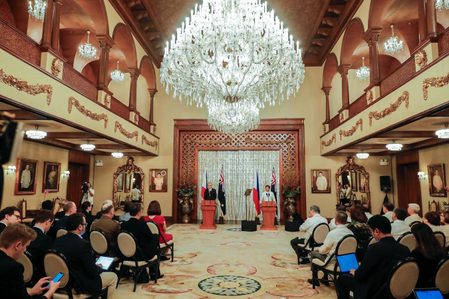
“Like-minded countries” – old, existing, and emerging – have been quick to propose closer relations, especially when it comes to maritime cooperation. During a visit to Washington DC in 2023, Marcos got what he had been asking for: an update to existing agreements with the United States.
Japan, a strategic partner and long-time friend especially in maritime issues, is eager to sign a Reciprocal Access Agreement (RAA), a Visiting Forces Agreement-like deal that would allow Japanese boots on Philippine soil more regularly. Canada wants the same set-up.
Australia certainly does not want to get left behind.
In September 2023, when Albanese visited Manila, the two countries officially elevated ties to a strategic partnership. During Marcos’ February 2024 visit Canberra visit, the two countries signed a “Enhanced Maritime Cooperation to strengthen our existing civil and defense maritime commitments.”
Canberra and Manila also signed Memoranda of Understanding on cyber and critical technology to better combat cyber attacks, as well as one on cooperation between competitive commissions to “enhance effective competition law and policy.”
Albanese also announced a Aus $20 million investment to “support the Philippines to reform, and improve access to, its justice system.”
Middle powers and the rules-base order
While Marcos’ speech made numerous references to the past – Filipino pearl divers in the 1860s who ventured into Australia, Filipinos who fought in Bataan and Corregidor to delay Imperial Japan’s onslaught, and the two countries’ roles in “shaping the free world’s vision for the postwar order” – more focus was placed on what lies ahead.
“From the very beginning, we knew that our interests were intertwined. The security of Australia is bound with the security of the Philippines. When my father accompanied Prime Minister [Edward Gough] Whitlam on a sentimental tour of Bataan and Corregidor in 1974, they reaffirmed that core principle,” he said.
“Our two countries have always understood that without the predictability and stability of our rules-based order, our region would not have emerged as the driver of the global economy as it is today,” added Marcos.
Albanese, in welcoming Marcos, also highlighted the two countries’ commonalities: island and trading nations and middle powers that depend heavily on regional stability and international law.
“All of us in the international community, middle powers like our countries, as well as small nations, have our part to play in building a more stable, peaceful and prosperous future,” said the Australian leader.
He also echoed a sentiment that Marcos had made in the past: that regional stability should not hinge in great powers.
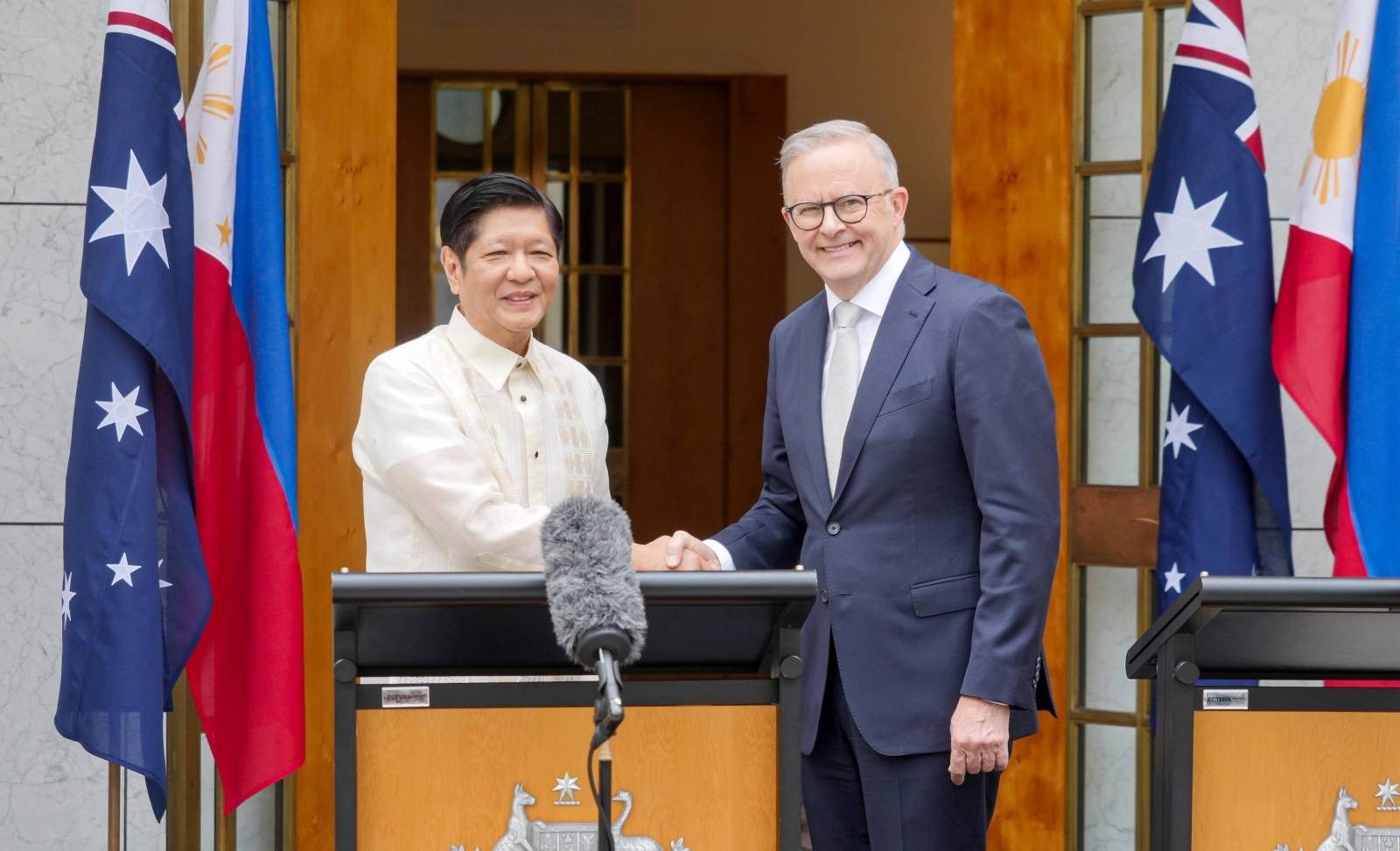
ALLIES. The Philippines and Australia sign agreements on maritime, cybersecurity, and trade during Marcos’ visit to Canberra.
“Our cooperation is an assertion of our national interest and a recognition of our regional responsibility. It reflects our shared understanding that peace depends on more than the presence of the great powers,” said the Prime Minister, as he emphasized the importance of upholding the United Nations Convention on the Law of the Sea and freedom of navigation.
The week before Marcos’ Canberra visit, the Philippines again reported incidents of harassment at the hands of the Chinese – both its China Coast Guard and Chinese Maritime Militia.
The West Philippine Sea is the flashpoint of tensions between Manila and Beijing – there’s Ayungin Shoal where a marooned World War II ship stands as a military outpost, and Bajo de Masinloc, where Filipino fisherfolk are regularly barred by the Chinese from fishing.
Both features are within the Philippines’ EEZ, which means it has sovereign rights over the area. Yet China insists almost all of the South China Sea is part of their territory, rejecting a 2016 Arbitral Ruling that said their claim was invalid.
“We must reinforce each other’s strengths. We must protect the peace that we fought for during the war and have jealously guarded in the decades since. We must oppose actions that clearly denigrate the rule of law,” Marcos told parliament.
In a previous interview with Rappler, Ateneo de Manila University Assistant Professor Alma Salvador said that in bringing Manila back closer to Washington DC, Marcos was building on the diplomacy work of the presidents before him – especially that of the late Benigno Aquino III.
On top of improving Philippine-US ties, Salvador then noted that like Aquino, Marcos was keen on working with fellow middle powers – Japan, South Korea, and, of course, Australia.
Both Manila and Canberra are treaty-allies of the US.
Philippine defense and security officials will say that allies – old and potential new partners – making a beeline to improve ties with the Philippines is a new opportunity they want to capitalize on. Observers and diplomats themselves said the opportunities had always been there: it was just a matter of the Philippines opening itself up to those opportunities.
https://www.rappler.com/newsbreak/in-depth/marcos-jr-presents-australia-frontlines-region-under-threat/
/bnn/media/media_files/9e0e27f08a42ba0931b7469e98a32155ab4f52bd49c54a41db052311bd857db7.jpg)

/bnn/media/media_files/3ac1d3d1865c0bee20d959f64f330a46cce5448d98d403685c0652c2530190f3.jpg)
